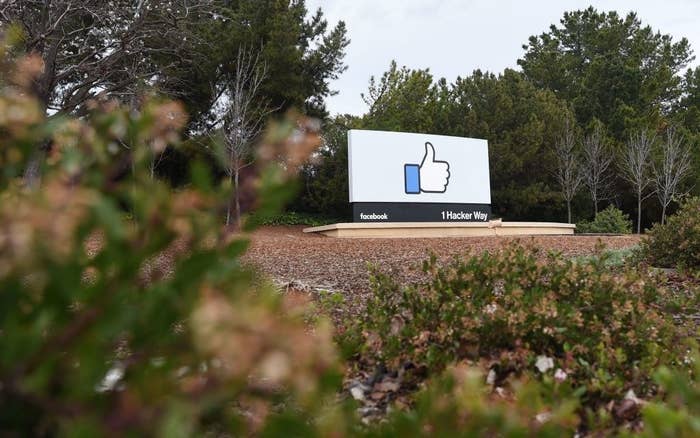
Facebook will ban Faith Goldy, Soldiers of Odin, the Canadian Nationalist Front, and other hate groups from across its platforms, the company said on Monday.
The ban will extend to any Facebook groups, pages, and Instagram accounts associated with those banned, which also includes Kevin Goudreau, Wolves of Odin, and the Aryan Strikeforce. These individuals and organizations have expressed white nationalist sentiments and violate Facebook’s policy on dangerous individuals and organizations, which bans “terrorist activity, organised hate, mass or serial murder, human trafficking, organised violence, or criminal activity.”
The ban comes after the social media giant has come under renewed scrutiny for allowing racism and hate to flourish on its platforms, and weeks after the terrorist attack in Christchurch, New Zealand, which was broadcast live on Facebook.
“Individuals and organizations who spread hate, attack, or call for the exclusion of others on the basis of who they are have no place on Facebook,” a Facebook spokesperson said. “That's why we have a policy on dangerous individuals and organizations, which states that we do not allow those who are engaged in offline ‘organized hate’ to have a presence on Facebook. The individuals and organizations we have banned today violate this policy, and they will no longer be allowed a presence on our services. Our work against organized hate is ongoing, and we will continue to review individuals, Pages, groups and content against our Community Standards.”
This is just the latest step in Facebook’s response to hate on its platform.
Two weeks ago, Facebook also said it will ban white nationalist and white supremacist content. But just last week the company said a video from Faith Goldy — a former television personality and Toronto mayoral candidate — in which she touted the well-known white nationalist line about white people being replaced by those of other ethnicities did not violate Facebook’s policies, according to HuffPost.
“Facebook banning Faith Goldy was the test here in Canada that this policy would be meaningful,” said Evan Balgord, the executive director of the Canadian Anti-Hate Network, which tracks white supremacism and hate in the country. “The groups they are banning are only the tip of the iceberg in Canada, and there are several others that should also be on that list.”
This also comes as countries around the world enact laws to police the takedown of content on Facebook. Australia's Parliament passed a law that allows it to jail social media executives if graphic violence is aired live. On Monday, the United Kingdom suggested a social media companies should be subject to a “code of practice” and overseen by an independent watchdog.
Balgord said Facebook hasn’t banned Yellow Vests, a movement that within it has many people championing racist and white nationalist sentiments. Groups in Quebec like Atalante Québec and Fédération des Québécois de Souche, which Balgord said are worse than the Soldiers of Odin, are also not part of the ban. Balgord also noted that Facebook’s latest ban is reactionary, rather than being proactive.
“Social media and tech giants have shown that they will only act after extreme public outcry or as a result of legislation,” he said.
Before the company announced a ban on white nationalist and supremacist content, researchers noted that fake news purveyors use hateful anti-Muslim language for profit, and that this content also drives engagement that keeps people on the platforms and viewing ads.
“Islamophobia happens to be something that made these companies lots and lots of money,” Whitney Phillips, an assistant professor at Syracuse University who has researched online harassment and extremism, previously told BuzzFeed News.
BuzzFeed News and the Toronto Star are investigating the ways in which political parties, third-party pressure groups, foreign powers, and individuals are influencing Canada’s political debate in the run-up to this fall’s federal election. This report was published as part of that collaboration.



